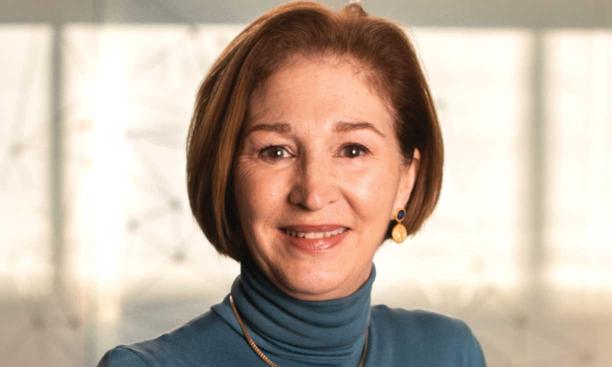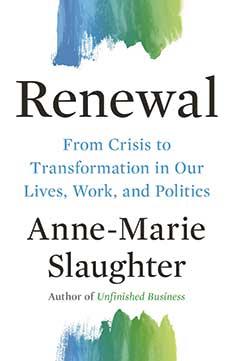
Slaughter’s experiences, alongside ongoing social movements like Black Lives Matter, have contributed to her thinking about how to embrace criticism and foster renewal at the personal and policy levels. She weaves these ideas together in Renewal: From Crisis to Transformation in Our Lives, Work, and Politics (Princeton University Press). She spoke with PAW about the book.
What does “renewal” mean in the context of this book?
I chose “renewal” because it’s between restoration and reinvention. It’s a word that looks backwards (“re”) and forward (“new”) at the same time. That means that to achieve transformation and move forward, you have to look backwards critically and with honesty. The U.S. particularly believes in reinvention, but I’m saying, nope, I don’t buy the idea of a whole new you. But I do buy that you can change.
Your first chapter is called “Run toward the Criticism.” Why?
We are at a time of great division, although I think the country is less divided than the polls and the standard national narrative insist. Because we are so often physically segregated from people we disagree with, it is easy and comfortable to clothe ourselves with moral certainty, the assurance that “we” are morally right and “they” are morally wrong. One way of learning to question moral certainty is to run toward the criticism and turn that moral lens back on yourself. Now, you do not have to accept it all, and for many people who are the subject of bias and discrimination, that’s not at all the right prescription. But it’s a great way to develop a different set of perspectives on yourself and other people. The other half of renewal is to let yourself imagine and dream and be inspired by a vision of what could be.
You call for a shift in thinking from “rugged independence” to “rugged interdependence.” What does that mean?
One of the key drivers of renewal nationally is that we are undergoing profound demographic change. We are going from a majority-white nation to a plurality nation, in which no one group will have a majority. To tell the history of that country, we have to go way beyond the traditional white male narratives that shape our national myths.
When you do, you find narratives of interdependence and solidarity. For example, Henry David Thoreau, who wrote Walden, is this icon of independence, but in fact, Walden Pond was only two miles from Concord and his mother brought him his dinner and did his laundry. When you go beyond the standard pioneer narratives about crossing the Great Plains and read women’s histories, they’re all about interdependence.
In five years, we will mark the 250th anniversary of U.S. independence. What is your vision for this country?
One achievable idea is to change our national motto from e pluribus unum, “out of many, one,” to plures et unum, “many and one.” By 2026, we will be looking at a future of extraordinary diversity, reflecting not just Europe and Africa but the entire world. At the same time, I believe that we can still be one country with a shared set of values, able to think of ourselves as many and one at the same time. Another idea I imagine is that George W. Bush’s and Barack Obama’s foundations could come together to identify another group of founders, such as Frederick Douglass, Susan B. Anthony, and Martin Luther King Jr., to match the original group. I got this idea from listening to Obama eulogize John Lewis, calling him “a founding father” of a “fuller, fairer, better America.” Because yes, the signatories of the Declaration of Independence are the founding fathers, but that’s a group of people at a moment of time, and we are an ongoing work.
Interview conducted and condensed by Eveline Chao ’02

